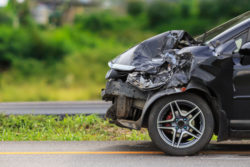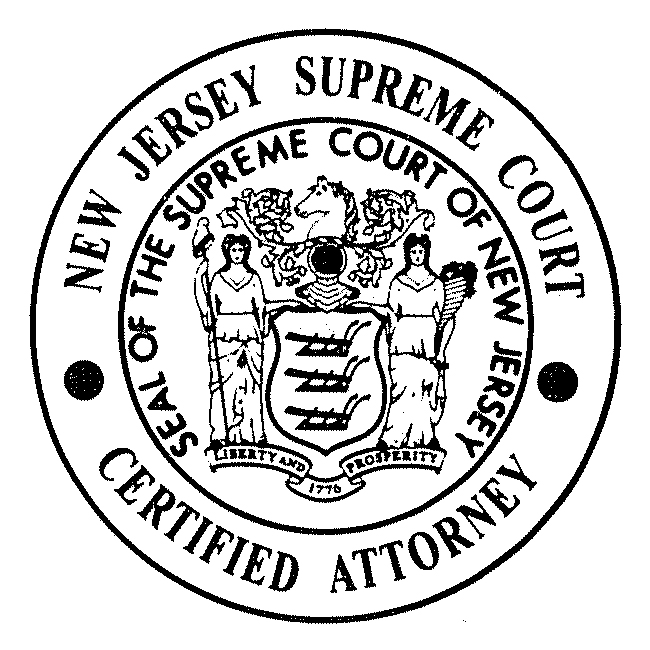How nine cents a day can save you $235,000 for medical treatment following a motor vehicle accident

New Jersey is a no-fault insurance state. What that means is that the standard automobile insurance policy automatically provides $250,000 of insurance coverage for medical bills (commonly called PIP coverage) incurred as a result of a car accident regardless of whose fault caused the car accident. In the event of a lawsuit, the first $250,000 of medical bills is not part of the damages that can be claimed by the injured party against the other driver. Instead, medical bills up to $250,000 are paid by your insurance company, not the other driver’s insurance company. The two main benefits of the no-fault system are that payment of medical bills is not dependent on proving fault, and your lawyer does not get to charge a percentage (typically, one-third) on any of the money your insurance company pays toward your medical bills. Unfortunately, insurance companies and their agents often encourage their clients to “save money by reducing the PIP coverage (medical expense benefits) from $250,000 to $15,000 without specifically mentioning the minimal amount of money that is saved or the potential risks of reducing PIP coverage. In a typical policy for a twenty-six (26) year old single male, reducing the PIP coverage from $250,000 down to $15,000 only reduces the premium by approximately $33 a year, or, to put it another way, the premium is only lowered by nine cents a day.
On March 26, 2019, the Supreme Court of New Jersey decided two cases (Haines v. Taft and Little v. Nishimura) that drastically penalize anyone whose PIP coverage is only $15,000. Ironically, the same auto insurance companies that encouraged their insureds to lower their PIP coverage also pushed to have the court penalize injured persons who followed the insurance company’s advice to reduce their PIP coverage. We are always dismayed when our clients tell us their insurance agent told them they have full coverage but it turns out the client had been hoodwinked into reducing the PIP coverage down to $15,000. Sadly, this pattern is the norm, not the exception. Indeed, we know of one auto insurance company CEO who was touting his company’s financial soundness by bragging about the fact that the company had been able to convince 83% of its insureds to reduce PIP coverage down to $15,000.
One ploy used by auto insurance companies and their insurance agents is telling insureds that PIP coverage is unnecessary if the person already has health insurance or Medicare because either way, the medical bills will be paid. However, unlike medical bills paid under a PIP policy, health insurance companies and Medicare are entitled to get their money back out of any lawsuit brought by the injured person. What is left unsaid is how this plays out in real life. If, for example, an injured person with only $15,000 in PIP coverage and private health insurance or Medicare has their hip broken by a drunk driver and incurs medical bills of $215,000, $15,000 in medical bills would be paid by PIP and $200,000 would be paid by private health insurance. If that same claim against the drunk driver were to settle for $300,000 or less, the injured party would receive nothing. [Only a miniscule number of drivers have more than $300,000 of liability coverage]. The lawyer would receive the standard 1/3rd ($100,000) and the health insurance companies would have a lien for $200,000 on the client’s share of any settlement or verdict. Thus, in that scenario, the lawyer would receive $100,000, the health insurance company would receive $200,000 and the client would receive nothing.
The situation is even worse for an injured party without private health insurance. Such a client injured in a motor vehicle accident would have trouble obtaining necessary medical treatment after the $15,000 in PIP coverage is exhausted. If the injured client were to find a doctor willing to provide treatment even after the $15,000 PIP coverage is exhausted, the bills from the doctor would not be an element of damages in any claim against the other driver and your doctor would be entitled to be paid in full from your share of any settlement before you can receive any money. In urging the legislature to remedy the problem, Supreme Court Justice Barry Albin described the situation this way: “the innocent insured [with only $15,000 PIP coverage] must bear the financial burden caused by the irresponsible wrongdoer.
PIP coverage is a terrific bargain for consumers which is exactly why auto insurance companies try to encourage their insureds to reduce the default amount of coverage of $250,000 down to $15,000. The lesson here is clear. Spend the extra nine cents per day, get the medical coverage you need without having to use private health insurance (which would want all its money back if you were to collect on a lawsuit) and if your auto insurance agent urges you to reduce your PIP coverage, decide whether that agent deserves your continued business.
Making decisions on your personal automobile insurance coverage can be daunting. We are here to help! Call us if you have questions about your automobile insurance coverage for more information.
 CALL NOW
CALL NOW






